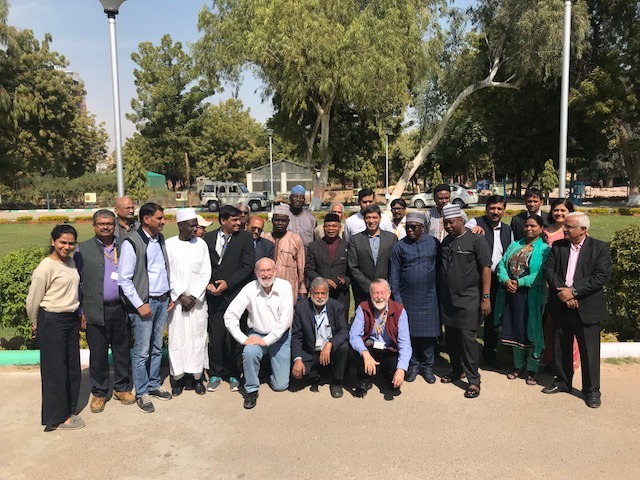
Africa: South Asia Bridge Consultation on Systems Approaches for Land Restoration
September 4, 2019
A milestone was created with this unique consultation on 15-17 February 2019 with over 30 African and South Asian professionals and policy makers on systems approaches to land restoration. This workshop was held in Jodhpur, India and sponsored by the Crawford Fund and the Global EverGreening Alliance.
The importance of successful land restoration and development is matched by the complexity of land use systems and sustainable rural development processes. For this reason, the consultation laid the foundations for systems approaches to research and extension for evergreen agriculture. Systems research and development tackles the complexity of interactions between soil and water resources, tree, crop, livestock and fishery productive activities, rural families and community groups and the institutional and market environment.

A rich spectrum of novel research and development experiences on land use, community development, institutions and policy formulation were presented and discussed in depth. Common challenges were identified across Africa and South Asia. The details of effective research and development targeting and implementation are dependent on the agro-ecology and the farming system. The consultation framed the discussions about systems approaches to land restoration in terms of five broad farming system types which are shared across Africa and South Asia. These are: The arid pastoral farming system, the semi-arid agro-pastoral farming system, the rainfed mixed farming system, the sloping lands hill mixed farming system and the coastal farming system. These five farming systems compose a framework for the establishment of a knowledge-sharing platform on systems approaches to land restoration between the two continents.
Participants enthusiastically supported the establishment of a knowledge-sharing bridge on systems approaches to land restoration between Africa and South Asia, and its linkages to other relevant global and regional programs and networks. There was very strong support for follow-up action on capacity-building on systems approaches to land restoration, including farmer-managed natural regeneration of trees on farmlands, and assisted natural regeneration in degraded forest lands and pasture lands.
It was recognised that the materials presented at the consultation complement existing training resources, and that they would be useful base modules for future training programs in this domain.
The outcomes of the consultation were presented at The Beating Famine Conference that was held immediately following, in Bamako, Mali, from 26-28 February.
The organisers and participants expressed their gratitude to the hosts, The National Rainfed Areas Authority (especially Dr Dalwai and Mr Sinha) and the Central Arid Zone Research Institute (Director Dr Yadav and CAZRI staff), and to the sponsors of the meeting: The Global Evergreening Alliance (including Drs Garrity and Dixon) and the Crawford Fund Australia (and the guidance of Shaun Coffey). Substantial co-investment from a variety of partners is greatly appreciated including the Government of India, World Bank, IFAD, Heinrich Böll Foundation, World Vision, Catholic Relief Services and more than ten other international and national NGOs.





 0
0